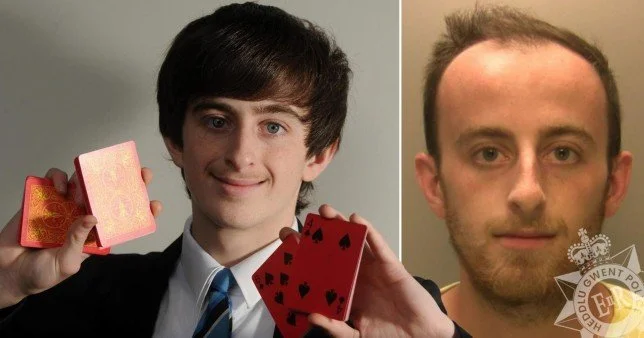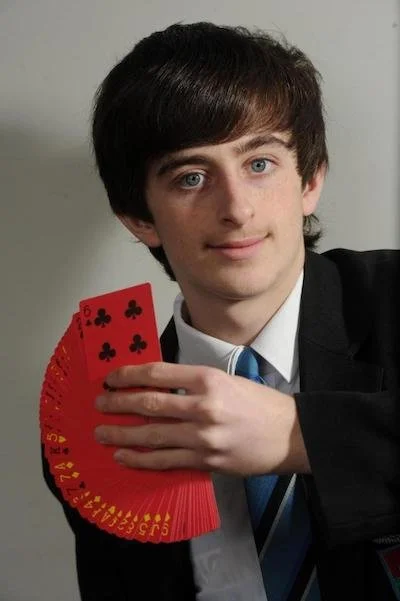My Top Three Variables for Differentiating the Magic Experience
/The professional is limited in the ways they can differentiate their performances. If you’re performing at the Magic Castle after David Regal, and you wanted to differentiate yourself from what he did. Then you might decide not to do any card tricks (because he frequently does those) or you might decide not to do any rejected jokes from an old According to Jim script (because he always does those).
You might be so scared of being compared to him that you come up with some weird “Rapping Magician” character.
I’m Magic Tommy and I’m here to say
I’m going to link these Chinese rings in a magical way
But no matter what you do, both experiences (your performance and his) will feel similar in a significant way to the audience because in both situations they will be sitting in a small theater watching a magic show.
As an amateur magician performing in social situations, we have a much greater set of tools we can exploit to make the experience of seeing a trick feel different for our spectators.
Usually when we talk about differentiating our performances, the first thing that comes to mind is changing up the type of material we do. Maybe we do a card trick one time, sponge balls the next, a mentalism trick, a gambling trick, etc.
“Type of material” feels like the most obvious variable to change up. But I think it’s also one of the least effective at generating a different experience for the spectator.
Here are my top three variables for creating magic experiences that feel distinct from one another.
Location
If I wanted to create five diverse memorable experiences with magic tricks and I was given these two options:
Option 1
Perform these five tricks for someone on different occasions at my dining room table:
Spoon bending
Color-changing knives
Coins thru table
$100 Bill switch
Linking safety-pins
Option 2
Perform a card trick for someone in these locations:
In front of a fireplace
On a picnic
While going through a car wash
In a phone booth
In bed
I would choose option 2 100% of the time as being the option that would generate stronger memories.
Someone will say, “Okay, so they might have more distinct memories of the environment in which the tricks occurred, but not the tricks themselves.”
Well, yes and no. Ideally the environment will be tied to the trick in some way. Maybe we’re burning a card if I’m performing in front of a fireplace. Or maybe we’re calling a random stranger from the phonebook to have them name any card in the deck if we’re in a phone booth.
But even if it was just five random card tricks in five different locations, I would still choose that over five varied tricks in the same location if my goal was to generate lasting memories of the experience of the performance.
Of course, this is a false dichotomy. You can change up your location and the type of material as well. I’m just saying if I could only change one or the other, I would prioritize location over material.
Time
If you write a word down and I read your mind, the experience of the trick is wildly different if I do it in 5 seconds, 5 minutes, 5 hours, or 5 days.
I think amateurs don’t nearly take enough advantage of the opportunity they have to present magic that lasts different lengths of time. Instead, almost everything they do is, like, 1-4 minutes.
Now, a two hour trick doesn’t mean they’re actually involved with watching a trick for two hours. You can do that, and I’ve done it in the past. But rarely. Usually it will be something that starts at a given point, and then I come back to it one or more times and then it concludes later on in the evening.
Of course, the implication should be that there’s some reason it’s taking so long, not that you’re just dragging things out.
Spectator’s Role
This is probably my favorite variable to play around with. What is the spectator’s role in the interaction? What is the relationship between you, them, and the thing they’re seeing? In a stage show, the role is almost always the same. They’re the spectator and the magician is the performer demonstrating something for their entertainment.
But in amateur magic, they can have many different roles and relationships to the effect.
They can be the spectator watching a magic trick.
They can be the “magician,” somehow demonstrating a magic ability they didn’t know they had.
They can be a student learning a trick from you.
They can be a spectator along with you to some other third-party magician (who may or may not actually exist).
They can be someone you’ve asked to help with a trick you’re working on.
They can be someone you’ve asked to critique a trick you’re working on.
They can be someone who is playing a game with you.
They can be someone taking part in a ritual with you.
They can be someone helping you test a concept or conduct an experiment.
They can be someone you’ve asked to join you on some mini-adventure into the unknown.
They can literally be playing a different role, e.g., “Hey, I have this trick I’m supposed to show my nephew’s class next week. Would you help me out by pretending to be an 8-year old?”
Playing around with these variables (and others) is the best way I’ve found to keep my performances fresh and interesting to the people I perform for regularly.


















